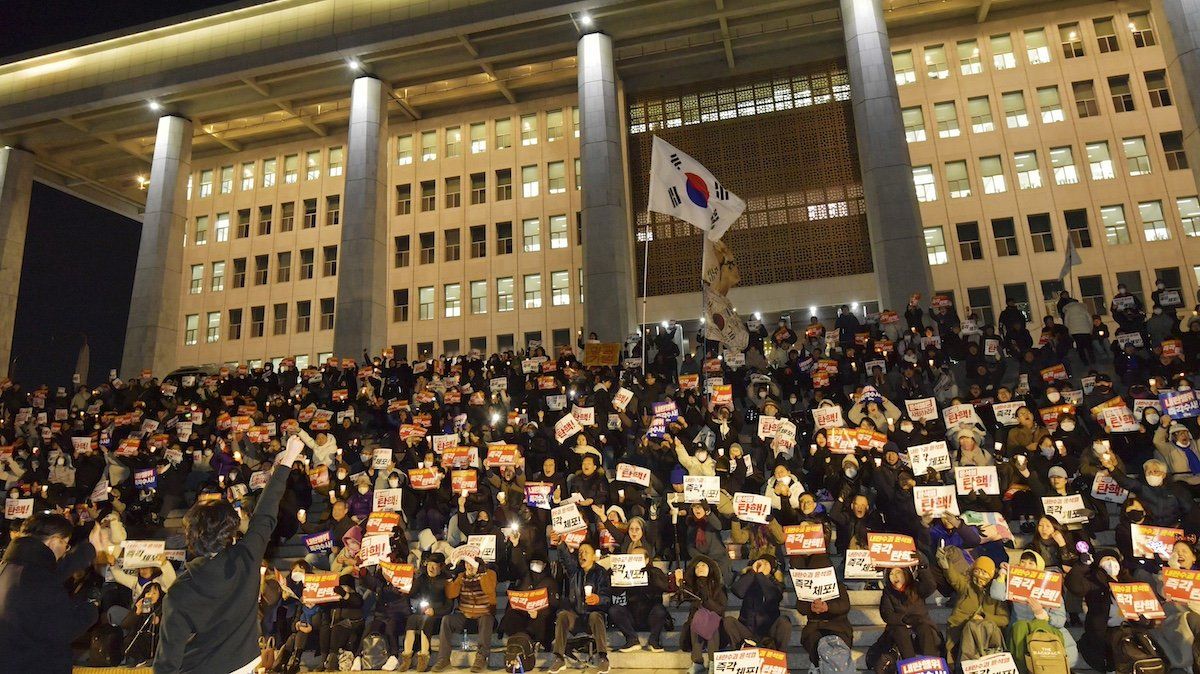Soon after South Korean President Yoon Suk Yeol lifted his imposition of martial law early Wednesday, opposition parties filed an impeachment bill against him in the National Assembly. Now, the clock is ticking: By Saturday, lawmakers will vote on Yoon’s future, and if two-thirds agree to impeach, he will be immediately suspended from office.
Yoon’s defense minister, chief of staff, and top secretaries have all resigned, and the president faces calls to do the same. South Korea’s largest labor union is calling for mass strikes if Yoon refuses to step down.
The opposition Democratic Party is also drawing up treason charges against Yoon and his defense and interior ministers, which could land them behind bars if convicted. Two presidents from South Korea’s military-rule era, Chun Doo-hwan and Roh Tae-woo, were convicted of treason in 1996.
What happens now? Yoon could resign, but Eurasia Group’s Jeremy Chan says that’s not his usual MO. “He’s a pugilist by nature. I don’t think he will go out without a fight,” he says, though “there is a slim chance that he can secure a deal with [opposition leader Lee Jae-myung] to go quietly and fade into the background in exchange for immunity for him and his wife.”
Still, Yoon’s ouster isn’t guaranteed. The opposition needs to peel off at least eight votes from Yoon’s party for the bill to pass, but given the bipartisan rejection of the coup attempt, that seems feasible.
If the bill passes, it then goes to the Constitutional Court, where at least six of nine justices need to confirm the impeachment before Yoon is removed, a process that could take weeks. There’s a wrinkle here as well, as currently the court has three vacant seats, so the decision needs to be unanimous – or the vote has to await three appointments.
We’re watching how Yoon plays the next few days, and the scramble for position ahead of elections likely to be held in the spring if Yoon is impeached.
